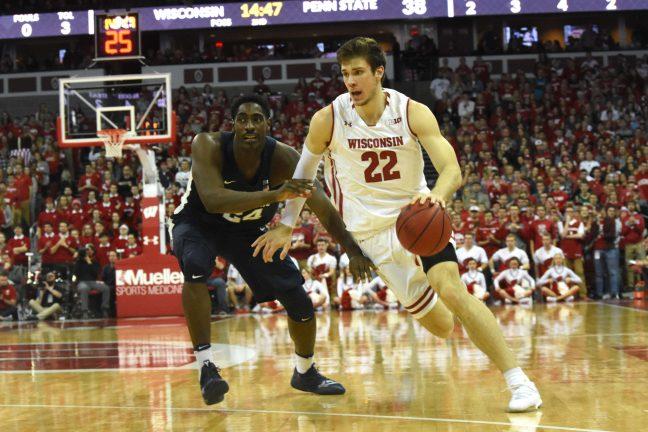Following a U.S. Supreme Court case that overturned a 25-year law prohibiting sports gambling, individual state legislatures can decide whether to legalize sports gambling, including Wisconsin.
Thirteen states have already legalized sports gambling, including Iowa and Indiana. Six more states are set to begin legalization next year, with many other prospective states, according to a Wisconsin State Journal article.
The discussion began in 2018, following a landmark Supreme Court case. According to the Milwaukee Journal Sentinel, justices ruled that a federal law effectively prohibiting sports betting outside Nevada by forcing states to keep prohibitions in their laws was unconstitutional. The ruling allowed for states to potentially expand legalized gambling.
To legalize sports betting in Wisconsin, there are a number of factors that legislators must consider such as federal law and state revenue and taxation. An Oxford Economics study estimates if sports gambling were to become legal in most or all states, it could generate a storage tax revenue from $4.2 billion to $19.6 billion annually.
Nevada earned $20.3 million in tax revenue from sports bets last year, according to the Tax Policy Institute. New Jersey collected $20 million.
New Jersey also collected over three times as much tax revenue from online wagers, $13.8 million, than it did from in-person bets, at $4.2 million.
Men’s Hockey: Wisconsin splits season-opening weekend in Massachusetts
A special report from CBS claimed the American Gaming Association valued the illegal sports gambling industry at $150 billion.
According to the Internal Revenue Service, there is a 0.25% federal tax on all sports betting handles. This affects the net profit that sports book handlers are allowed to keep and the extent of a potential state tax.
Additionally, because of the already existing federal tax, the maximum state tax the state legislation can impose is limited because they do not want to discourage sports book operators from operating. Other factors that need to be considered include mobile and online betting, royalty fees and the requirement of league data by sports book keepers.
In Wisconsin, tribal compacts, which are loose contracts, are also relevant. Currently, 11 tribal nations run 26 casinos across the state, according to the Department of Administration. The gambling compacts that these tribal nations have with the state allow them to run games such as blackjack and poker, or Class III games.
The original tribe compacts that allowed the tribes to operate these games was passed before the games were legally limited. It is therefore through these older compacts that tribe casinos may offer these games, according to Informational Paper 88 from the Wisconsin Legislative Fiscal Bureau.
If sports gambling becomes legal and tribal nations wanted to offer betting in their casinos, they would need to renegotiate their compacts accordingly unless legal proceedings were written to allow otherwise, stated in the Wisconsin State Journal.
Casinos are expecting to attract a new demographic with sports gambling. Even though many forms of gambling are already legal, the further accessibility to gambling can bring some additional concerns, such as addiction, experts said.
Rose Blozinski, executive director of the Wisconsin Council on Problem Gambling, discussed this concern.
“What we certainly know from history is as you increase more accessibility to gambling or activity, you certainly are at risk to increase the number of people who may have some kind of problem,” she said.
Most people can gamble for fun without it becoming a problem, Blozinski said. The percent of Wisconsin’s population who may “develop problems” is 5-10%, according to Blozinski’s estimate.
University of Wisconsin freshman Jordan Gao said the nature of the odds being stacked in the casino’s favor made it less entertaining for him to gamble.
“When the results of the game are preset, there is not any entertainment left,” Gao said.
Wisconsin lawmakers have an uphill battle, however, in passing laws, especially when legalizing gambling. According to the Wisconsin State Journal, the policy would first need to be approved by the Assembly and Senate in two consecutive sessions. It would be followed by a statewide referendum, in order to change the state’s constitution.
Rep. Tyler Vorpagel, R-Plymouth, told the Wisconsin State Journal he was “all for” legalizing sports gambling. He said he wanted to see sports gambling revenue stay “in the state.”



















